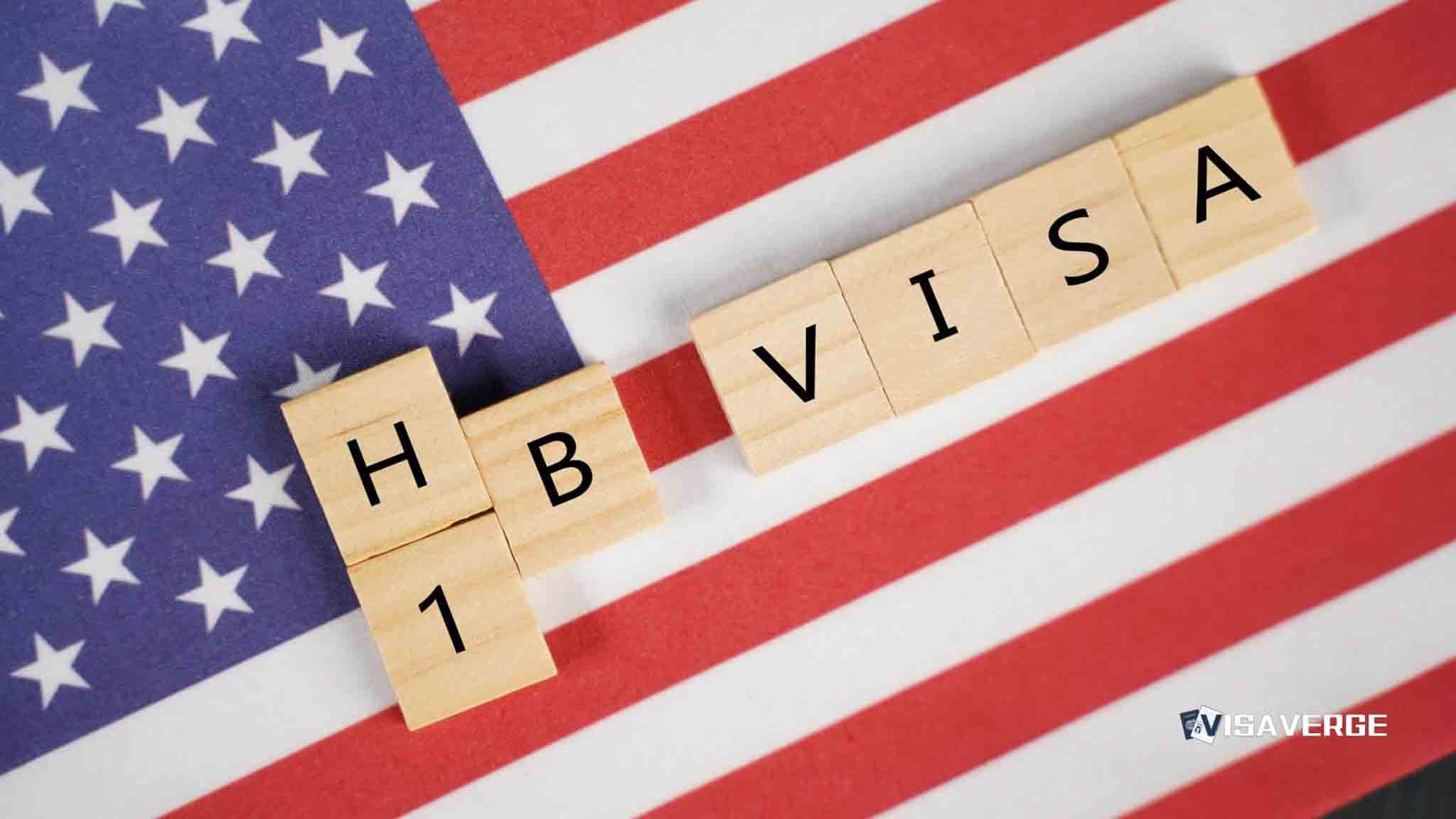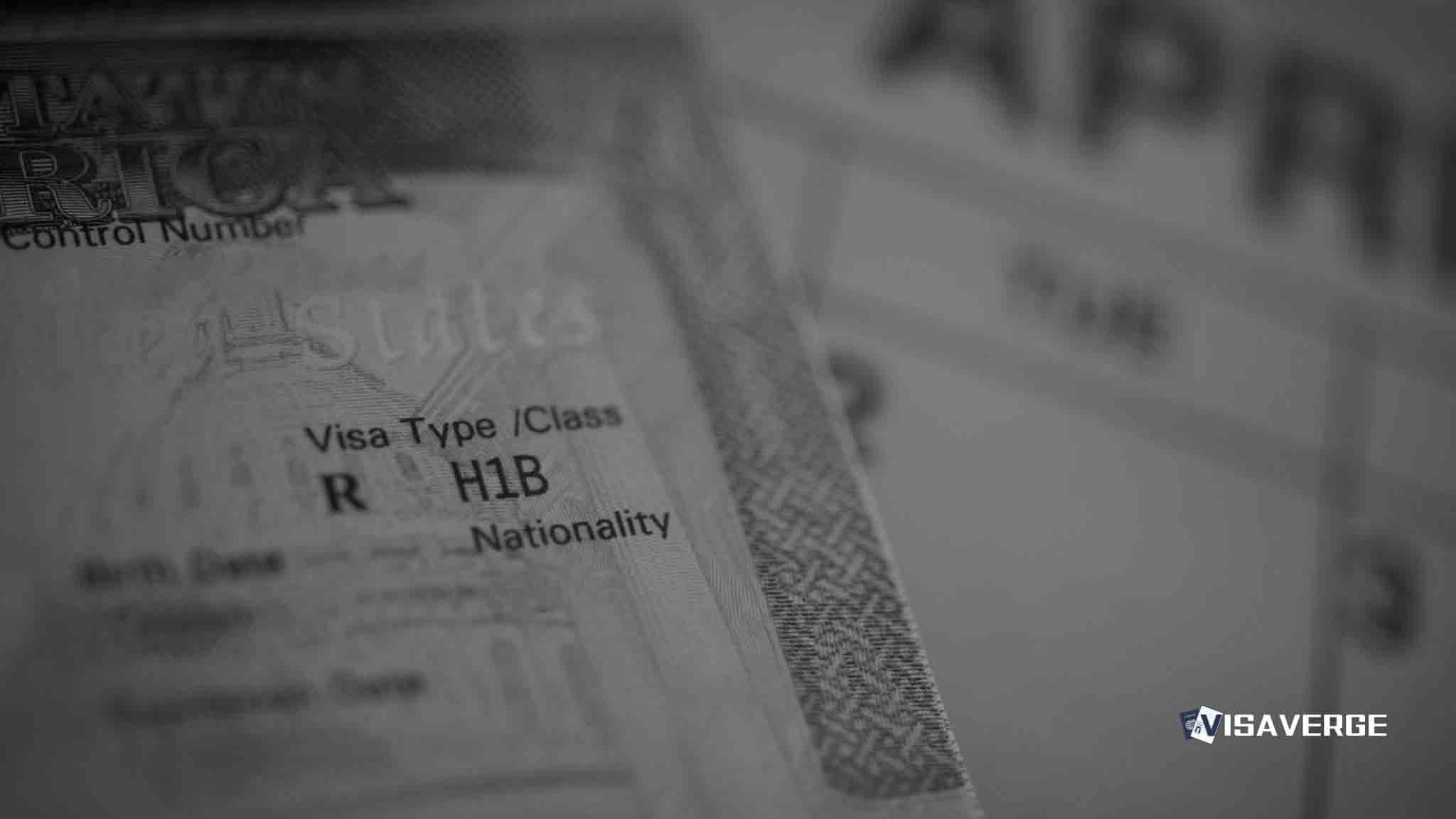Quick Glance:
- H-1B visa holders are generally not eligible for unemployment benefits due to their non-immigrant status tied to employment.
- The USCIS allows a grace period of up to 60 days for H-1B visa holders who lose their jobs.
- Options for H-1B visa holders include seeking new employment, changing visa status, or planning to leave the country. If you’re an H-1B visa holder in the United States, you might be wondering what kind of support is available if you find yourself out of a job. Losing employment is challenging, regardless of your visa status, but for H-1B workers who are in the U.S. on an employment-based visa, there are unique concerns. One critical question that arises is whether H-1B visa holders are eligible for unemployment benefits. The answer to this question isn’t straightforward, but I’ll do my best to clarify this complex issue in the simplest terms.
Understanding Unemployment Benefits in the U.S.
Unemployment benefits are compensation provided by government agencies to individuals who find themselves out of work involuntarily and are actively seeking new employment. In the United States, these benefits are managed at the state level, which means eligibility criteria and benefit amounts can vary significantly from state to state.
If you’re holding an H-1B visa, it means that you’re temporarily in the U.S. to perform services in a specialty occupation. This visa has a strict requirement that your legal status in the country is tied to your employment. So, if you lose your job, the question of eligibility for unemployment benefits gets a bit complicated.
Eligibility for H-1B Visa Holders
Here’s the crux of it: Generally, H-1B visa holders are not eligible for unemployment benefits. Why, you might ask? Because the H-1B visa is a non-immigrant status that requires you to have a job to maintain legal status. Once you’re no longer employed, you’re typically expected to leave the United States unless you find another employer to sponsor your H-1B status or you change your status to another visa type.
However, the global nature of employment and the unpredictability of job markets—especially in the wake of the COVID-19 pandemic—have raised attention to the challenges faced by H-1B workers when they suddenly lose their jobs. Here’s what you need to know if you find yourself in such a situation:
- Grace Period: The U.S. Citizenship and Immigration Services (USCIS) allow a one-time grace period of up to 60 days or until the end of the authorized validity period, whichever is shorter, for H-1B workers who lose their jobs. This grace period is meant to give you time to pursue new employment, change your visa status, or make plans to leave the country.

- Seeking New Employment: During the grace period, you can search for another employer who might be able to file a new H-1B petition on your behalf. It’s essential to act quickly if this is the path you choose.
- Changing Status: Another option is to apply for a change of status to another visa category for which you might be eligible. Some choose to switch to a tourist visa while they sort out their next steps, though this would not allow you to work in the U.S.
- Understand State Laws: If you still think you might qualify for unemployment benefits, it’s crucial to understand your residing state’s laws. Some states may have specific clauses that might affect an H-1B holder’s eligibility.
When considering unemployment benefits, keep this key point in mind: the central requirement is that you must be willing and able to accept work immediately. This condition conflicts with the H-1B visa’s terms, as H-1B holders are not legally authorized to work just for any employer—it has to be for the employer who has sponsored their visa. Applying for benefits might imply that you are willing to violate your visa status, leading to further complications.
What Should You Do If You Lose Your H-1B Job?
If you find yourself in the unfortunate position of losing your H-1B sponsored job, it’s important to take immediate steps:
- Notify USCIS: Notify the United States Citizenship and Immigration Services (USCIS) and discuss your options with them.
- Consult an Immigration Attorney: Get in touch with an immigration attorney who can provide advice tailored to your specific circumstances.
- Consider Visa Options: As mentioned, you might be able to change your visa status, providing additional time to find a new job in the U.S.
- Plan for Departure: If you are unable to secure new employment or change your status, you will need to plan to leave the United States within the grace period to avoid violating immigration laws.
Remember that navigating the intersection of immigration law and employment can be inherently complex. To avoid any missteps, always refer to official resources like the USCIS website and seek professional assistance when needed. To learn more about the H-1B visa, including your rights and obligations, you can visit the USCIS H-1B Visa Guide.
Though this is indeed a challenging situation, with proactive steps and a clear understanding of your options, you can manage your circumstances with as much control and dignity as possible. Stay informed, seek support, and know that many have navigated this path successfully before you.
So there you have it, my tech-savvy friend! Navigating unemployment benefits as an H-1B visa holder can be quite the adventure. Remember, it’s a bit tricky and not always a straightforward path, but with a little grace (period) and some strategic planning, you’ll be able to find your way. For more in-depth information and helpful resources, head over to visaverge.com. Happy exploring!
FAQ’s to know:
FAQ 1: Are H-1B visa holders eligible for unemployment benefits in the United States?
No, as a general rule, H-1B visa holders are not eligible for unemployment benefits in the United States. The H-1B visa is a non-immigrant visa that requires you to have a job to maintain legal status. Once you lose your job, you are typically expected to leave the country or find another employer to sponsor your visa status.
FAQ 2: What options are available for H-1B visa holders who lose their jobs?
H-1B visa holders who lose their jobs have several options to consider: 1. Grace Period: The U.S. Citizenship and Immigration Services (USCIS) allows a one-time grace period of up to 60 days (or until the end of the authorized validity period, whichever is shorter) for H-1B workers who lose their jobs. This grace period allows you to pursue new employment, change your visa status, or make plans to leave the country. 2. Seeking New Employment: During the grace period, you can search for another employer who might be able to file a new H-1B petition on your behalf. Acting quickly is essential in this case. 3. Changing Status: Another option is to apply for a change of status to another visa category for which you might be eligible. However, switching to a tourist visa, for example, would not allow you to work in the U.S. 4. Understand State Laws: It’s important to understand your residing state’s laws as they may have specific clauses that could affect an H-1B holder’s eligibility.
FAQ 3: What should H-1B visa holders do if they lose their jobs?
If you lose your job as an H-1B visa holder, take the following steps:
- Notify USCIS: Inform the United States Citizenship and Immigration Services (USCIS) about your job loss and discuss your options with them.
- Consult an Immigration Attorney: Get in touch with an immigration attorney who can provide advice tailored to your specific circumstances.
- Consider Visa Options: Explore whether you can change your visa status to allow for additional time to find a new job in the U.S.
- Plan for Departure: If you are unable to secure new employment or change your status, make plans to leave the United States within the grace period to avoid violating immigration laws. Contacting an immigration attorney can help you navigate this process effectively.
What did you learn? Answer below to know:
- True or False: Are H-1B visa holders eligible for unemployment benefits in the United States?
- What is the purpose of the grace period provided to H-1B visa holders who lose their jobs?
- What are the available options for H-1B visa holders who find themselves unemployed?
Did you Know?
Did You Know?
- Immigration Diversity: The United States has a long history of immigration and is one of the most diverse countries in the world. Over 44 million immigrants currently reside in the United States, accounting for about 13.7% of the total population.
-
Immigrant Contributions: Immigrants have made significant contributions to the U.S. economy and society. According to a study by the National Academies of Sciences, Engineering, and Medicine, immigrants have higher rates of entrepreneurship and patent creation than native-born citizens, leading to job creation and economic growth.
-
Family-Based Immigration: The majority of immigrants to the United States come through family-based immigration. Under this system, U.S. citizens and lawful permanent residents can sponsor their relatives for immigration, allowing families to reunite and build new lives together.
-
Refugee Resettlement: The United States has been a global leader in refugee resettlement. Since 1980, the U.S. has admitted over 3 million refugees, providing them with protection, support, and opportunities for a fresh start.
-
Immigrant Workforce: Immigrants play a critical role in the U.S. labor force. They fill essential jobs in industries such as healthcare, agriculture, and technology. In fact, immigrants make up a significant portion of healthcare workers, with around 29% of physicians and 24% of registered nurses being foreign-born.
-
DREAMers: DREAMers refers to young undocumented immigrants who were brought to the United States as children. The term comes from the Development, Relief, and Education for Alien Minors (DREAM) Act, proposed legislation that would provide a pathway to citizenship for these individuals. DREAMers are estimated to number around 700,000 and have become a focus of the immigration debate.
-
Immigration Enforcement: The United States spends billions of dollars each year on immigration enforcement. In fiscal year 2019, the budget for immigration enforcement agencies, such as ICE and CBP, was approximately $23.7 billion.
-
Naturalization Process: Becoming a U.S. citizen through naturalization involves a rigorous process. Applicants must meet various requirements, including a continuous residence, knowledge of English and U.S. civics, and a commitment to the principles of the U.S. Constitution. In 2019, over 834,000 individuals became naturalized citizens.
-
Temporary Protected Status (TPS): TPS is a temporary immigration status granted to eligible individuals from countries experiencing armed conflict, environmental disasters, or other extraordinary conditions. As of 2020, over 400,000 people from 10 countries were living in the U.S. under TPS.
-
Diversity Visa Program: The Diversity Visa Program, also known as the Green Card Lottery, provides an opportunity for individuals from countries with historically low rates of immigration to the United States to apply for permanent residency. Around 50,000 diversity visas are issued each year through a random selection process.
Remember, immigration is a complex and multifaceted topic, and these facts only scratch the surface of its impact and importance. Explore further to uncover more intriguing aspects and stories related to immigration.
Learn Today: Key Terms Explained
Glossary:
H-1B visa: A non-immigrant visa that allows foreign workers to temporarily work in the United States in a specialty occupation.
Unemployment benefits: Compensation provided by government agencies to individuals who are involuntarily unemployed and actively seeking new employment.
Specialty occupation: A job that requires specialized knowledge and a bachelor’s degree or higher in a specific field.
USCIS: The U.S. Citizenship and Immigration Services, a government agency responsible for processing immigration applications and petitions.
Grace period: The period of time, up to 60 days or until the end of the authorized validity period, whichever is shorter, granted to H-1B visa holders who lose their jobs to pursue new employment, change their visa status, or make plans to leave the country.
Change of status: The process of changing from one non-immigrant visa category to another while residing in the United States.
Tourist visa: A non-immigrant visa that allows individuals to temporarily visit the United States for tourism or leisure purposes.
State laws: Laws specific to individual states within the United States that may have additional requirements or restrictions affecting H-1B visa holders’ eligibility for certain benefits.
Notify USCIS: Informing the U.S. Citizenship and Immigration Services about changes in employment or visa status.
Immigration attorney: A lawyer specializing in immigration law who can provide legal advice and assistance in navigating immigration-related issues.
FAQ:
FAQ 1: Are H-1B visa holders eligible for unemployment benefits in the United States?
Answer: No, as a general rule, H-1B visa holders are not eligible for unemployment benefits in the United States. The H-1B visa is a non-immigrant visa that requires individuals to have a job to maintain legal status.
FAQ 2: What options are available for H-1B visa holders who lose their jobs?
Answer: H-1B visa holders who lose their jobs have several options, including:
1. Grace Period: A one-time grace period granted by USCIS, allowing up to 60 days or until the end of the authorized validity period, whichever is shorter, to seek new employment, change visa status, or make plans to leave the country.
2. Seeking New Employment: Searching for another employer who can file a new H-1B petition on their behalf.
3. Changing Status: Applying for a change of status to another visa category for which they may be eligible.
4. Understanding State Laws: Considering the specific clauses in the state where they reside, as some states may have additional eligibility requirements for unemployment benefits.
FAQ 3: What should H-1B visa holders do if they lose their jobs?
Answer: If H-1B visa holders lose their jobs, they should:
1. Notify USCIS: Inform the U.S. Citizenship and Immigration Services about the job loss and discuss options with them.
2. Consult an Immigration Attorney: Seek advice from an immigration attorney who can provide personalized guidance.
3. Consider Visa Options: Explore the possibility of changing visa status to allow for additional time to find new employment in the U.S.
4. Plan for Departure: If unable to secure new employment or change status, make plans to leave the U.S. within the grace period to avoid violating immigration laws.








